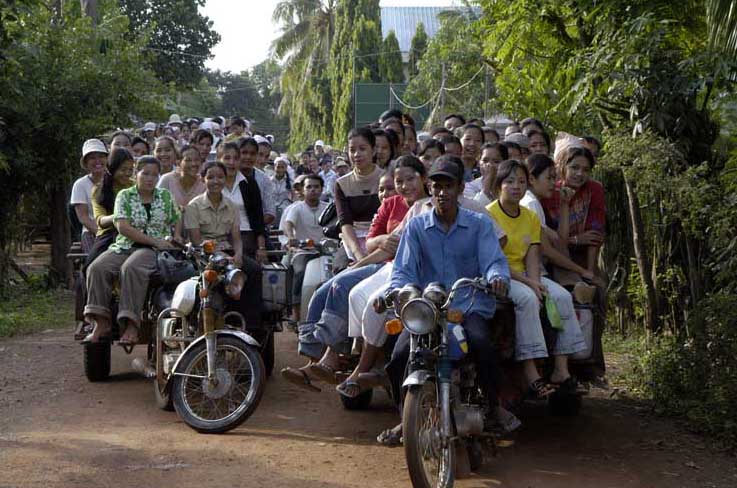Cambodian Law Curtails Womens’ Labour Rights
Nearly a year ago, the Human Rights Watch released a report detailing the failure of the Cambodian government to protect women worker’s rights; however, only recently have these issues entered the media spotlight with new trade union laws set to be voted on in the CPP-majority parliament (Cambodia People’s Party) on April 4th. Women comprise nearly eighty percent of the garment industry in Cambodia and continue to encounter problems which remain poorly addressed by the government. Many women work 70 hours a week and face other mistreatment such as forced overtime, pregnancy-based discrimination and anti-union practices. Union action which could protect the women from these abusive practices is restricted, as factory managers will often try and dismiss or intimidate new union leaders.
Srey Mao, a union member garment worker who has been fired twice, stated, “If they see any girl talk to me, they will fire her.”

Female garment workers also face one of the worst crimes in the workplace - sexual harrassment. Garment worker Louk Saven described,: "They will fire older women and recruit young girls because they want pretty girls to work in their factory.” Many older workers will even lie about their age to get jobs. The worst of the labour violations occur in smaller subcontractor factories which do not directly export goods and are consequently not monitored by the government.
It is predicted that the CPP will pass the new Trade Union Law next month despite an investigation conducted by Human Rights Watch which revealed the law’s potential failure to conform to international labor laws and human rights standards. The law prevent unions from acting “contrary to public order,” or from causing “trouble with the only objective of being of service to a political tendency.
Ultimately, Capitalism is the primary motivation behind passing the controversial new Trade Union Law. Cambodia’s garment industry is a multibillion dollar industry and the government must keep wages low and production high in order to maintain competitiveness . Big brands like H&M, Adidas, and Gap receive their product from Cambodian factories, but Cambodia faces stiff competition from other countries such as Vietnam, Bangladesh and Thailand. CPP’s Spokesman Cheang Vun demonstrated the capitalistic interests of the government and described, “if we changed [the law] to meet demands by workers and unions, it will cause problems with investors and they will withdraw their capital.”
